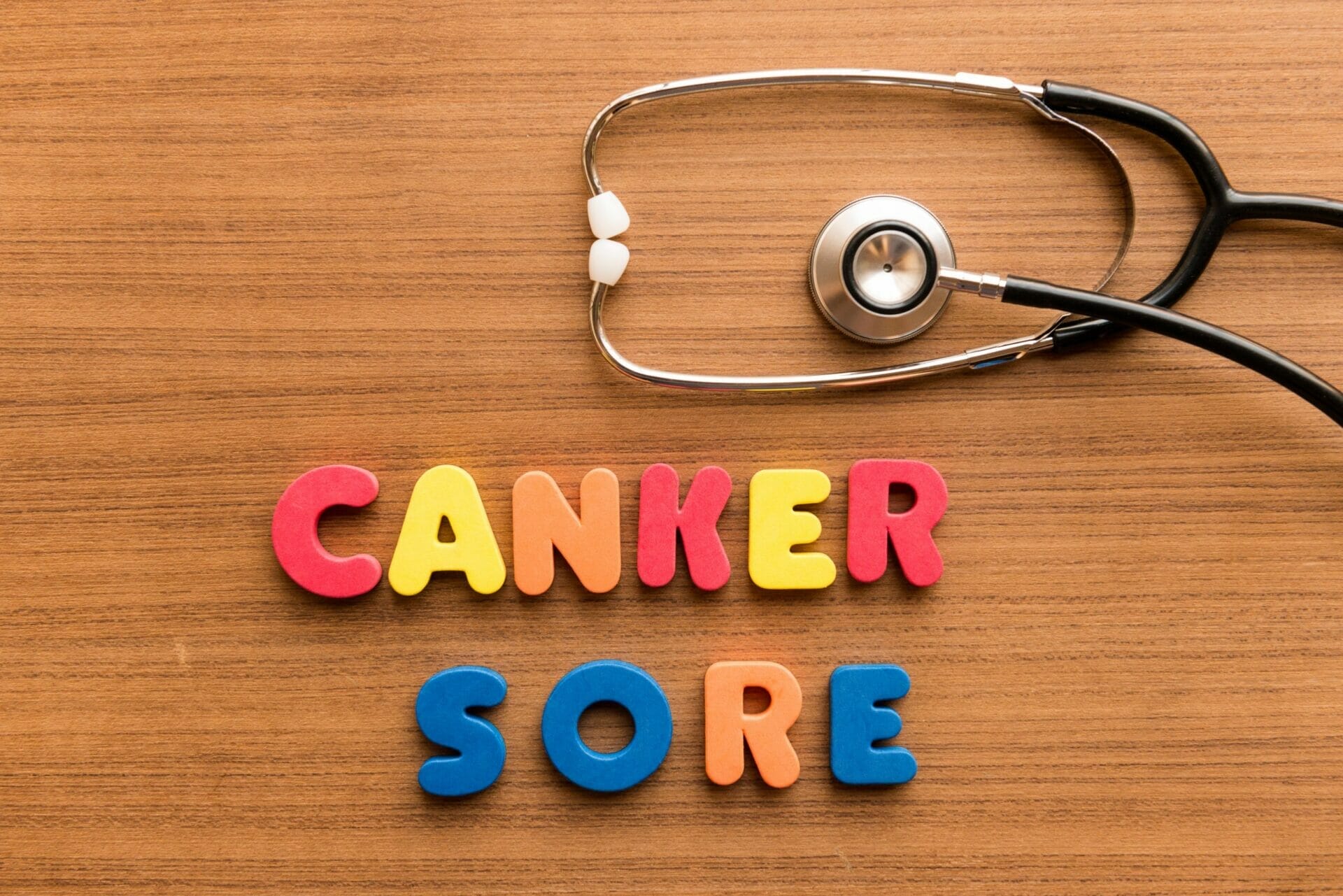
I see patients commonly at my Kitchener Dental Office about cold sores, and if you suffer with them, you know just how painful they can be. Canker sores are a very common oral condition and affect the majority of the population from time to time. For some individuals, the frequency of developing canker sores is very high and affects their quality of life.
Today, I will answer the most frequently asked questions about Canker Sores. I hope the information provided below can help you to minimize or eliminate Canker Sore relapses.
A canker sore is a whitish-yellow circular break in the mucosa inside your mouth. Mucosa is the fancy word for the reddish pink, thin tissue on your cheeks and inner lips.
This whitish-yellow break in the mucosa will have a red halo or border around it.
Canker sores are thought to have a number of different causes. Generally, the frequency increases when your are under great stress, not eating well, and/or lacking sleep. If you suffer from frequent canker sores, the best thing you can do is to maintain a good diet, sleep well, and try to manage stress with regular relaxation and decompression exercises.
Other causes include:
Typical Canker Sores take 7-12 days to heal. Some interventions can speed healing such as rinsing with high salt solutions.
No. Canker Sores cannot spread and are not contagious. They are a mechanical disruption or break in the oral tissues and they are not related to viral infection.
Some people who suffer from Recurrent Aphthous Ulceration (RAU) can develop multiple Canker Sores at once but this is not the result of spread from one site to another.
Canker sores do not bleed. If you traumatize a canker sore (i.e. by scraping it) then you can certainly make it bleed. However, these sores do not bleed on their own.
Canker sores cause very localized, stinging pain. They do not typically cause referred pain to other sites. As such, these sores do not cause headaches or jaw pain.
The Canker Sore, or Aphthous Ulcer, will heal on it's own within 7-12 days. There's really no "magic bullet" for ridding yourself of a canker sore immediately.
You can, however, help speed healing by:
There are many chemical ointments and gels out there for Aphthous Ulcer pain relief. I try to discourage use of potentially harmful chemicals, especially in the mouth. One thing that can provide transient relief for 20-30 minutes at a time is a topical anesthetic like Orajel. I would discourage using this more than 2-3 times per day. Importantly, less is more with Orajel - you only need a very thin layer over the ulceration.
Laser treatment can also diminish nerve pain around the Canker Sore. If pain is severe, you can call your Kitchener Dentist to request laser treatment.
A canker sore occurs inside the mouth. It appears as a whitish-yellow circular break in the reddish-pink mucosa of the cheek or inner lip.
A Cold Sore (or herpes labialis) occurs on the border of your lip, outside of the mouth. It goes through phases, starting as a raised red area, eventually forming blisters that break, dry out and crust over.
Our Kitchener Dental Office is conveniently located in Downtown Kitchener and we are a short drive away for families in Waterloo, Breslau & St. Jacobs. Our central location means we truly offer family dentistry near you!
This article is meant to promote understanding of and knowledge about general oral health topics. It is not intended to be a substitute for professional advice, diagnosis or treatment. Accordingly, always seek the advice of your Kitchener Dentist or other healthcare provider regarding a dental condition or treatment.
Services
Routine Dentistry & Tooth Repair
Oral Surgery & Tooth Removal
Prosthetic Dentistry & Tooth Replacement
Protective/Preventive Services
Teeth Whitening
Schedule an Appointment Now
